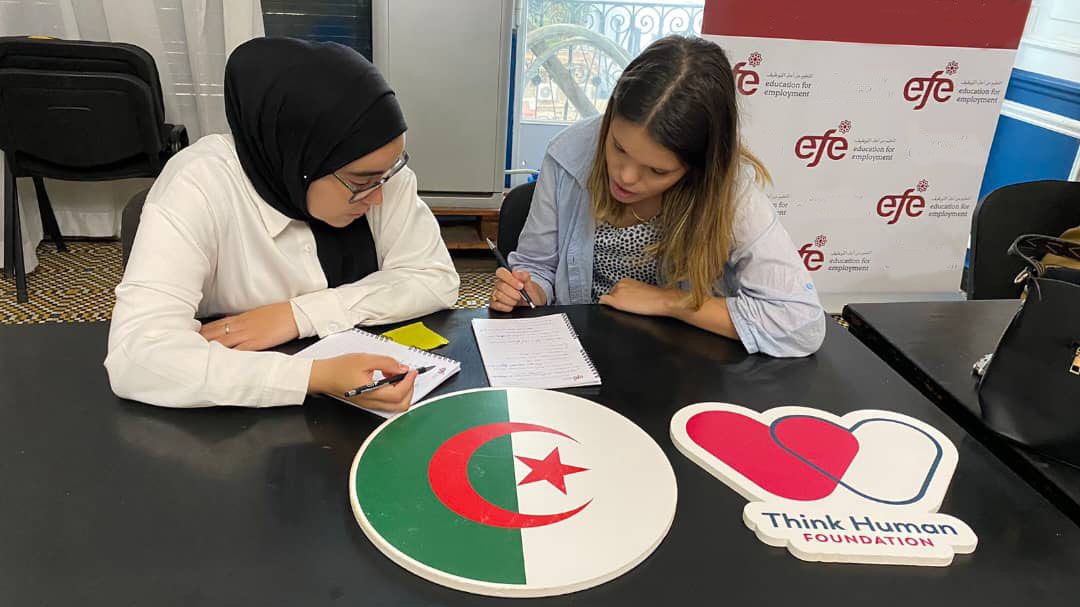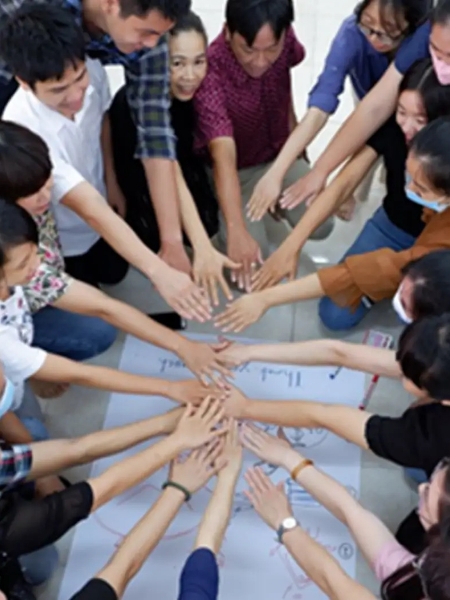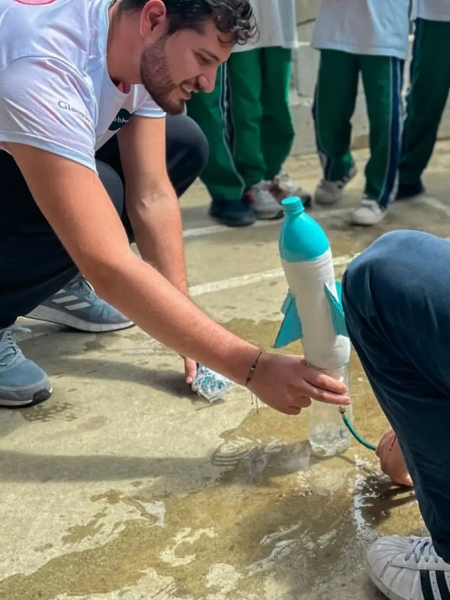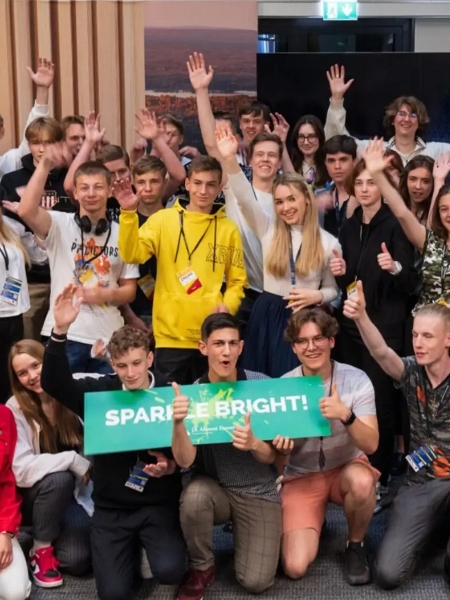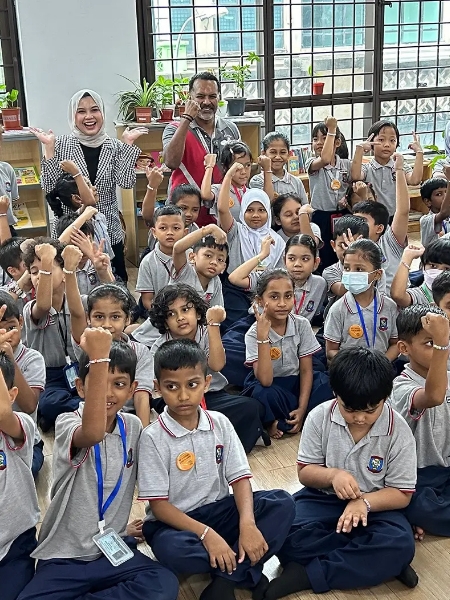Fundación Educación para el Empleo – EFE Europe
Think Human Fund
Mission & History
Fundación Educación para el Empleo (EFE-Europe) is part of the Education For Employment (EFE) Network, founded in 2002. Since then, it has grown into a network that spans ten countries in the Middle East and North Africa (MENA) region, helping to create economic opportunities for young people. EFE-Europe, based in Madrid, supports this mission by leveraging European partnerships and collaborating with governmental entities, EU donor agencies, and corporations.
EFE’s mission is to equip young women and men with the skills needed in today’s job market and link them to employment and entrepreneurship opportunities. This mission aligns with the United Nations Sustainable Development Goals (SDGs), particularly focusing on no poverty, quality education, gender equality, decent work and economic growth, and reduced inequalities.
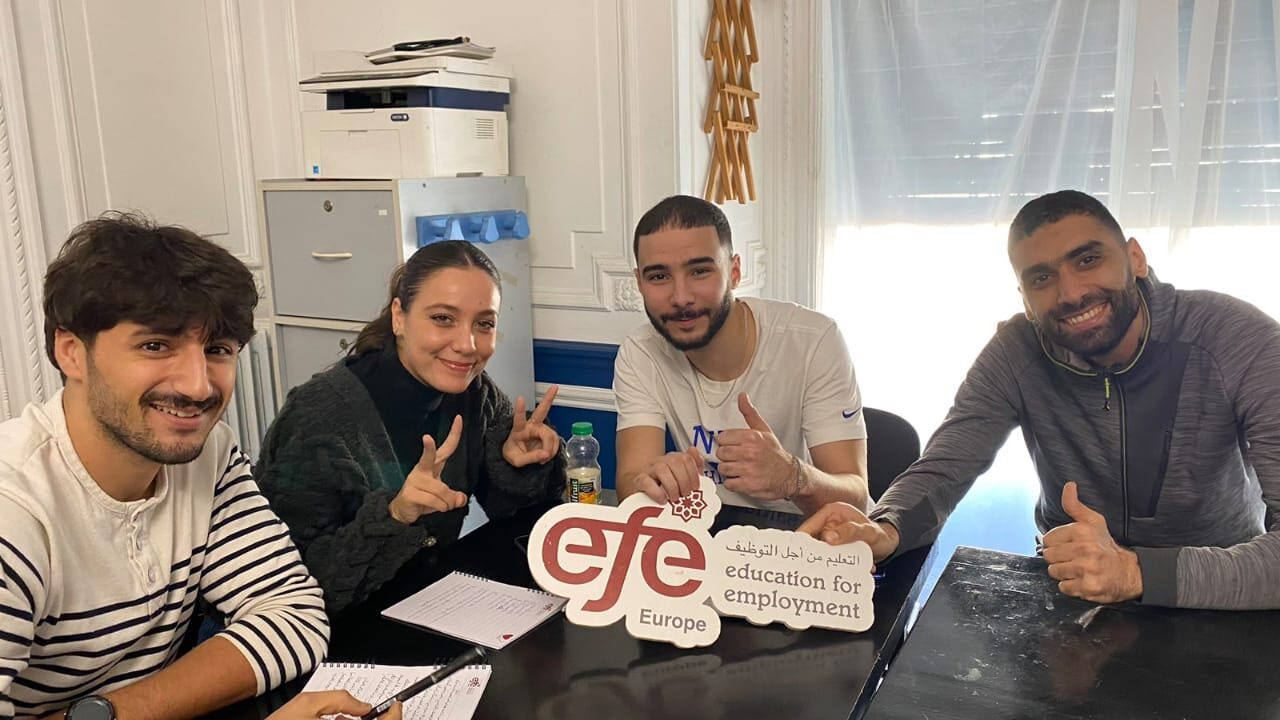
Country Information
In the MENA, where two thirds of the population is under 35, youth unemployment stands at 25% and 4 in 5 working-age youth do not participate in the labour force.
In the case of women, only 1 in 9 are active, while young female unemployment is at 39.8%. This hinders competitiveness, growth, and development, and contributes to high generational poverty, all of which have been severely aggravated by the current global and regional economic and sociopolitical crises.
In Algeria, 32% of youth are unemployed, 47.2% of whom are young women. Furthermore, the country has lowest rate of FLFP worldwide with only 9% of young females participate in the labour force.
Algeria ranked 93 of 193 on UNDP’s 2022 HDI, having lost 9 positions since 2019. Despite ranking high on human development, it has a GINI coefficient of 27.6%, with inequalities growing year after year.
The Need
Despite the economic downturn, sectors like ICT, offshoring, e-commerce, healthcare, and supply chain have seen significant growth. However, a severe skills mismatch impedes hiring, with Morocco and Algeria ranking poorly in skills and labor market factors on the WEF’s 2019 Global Competitiveness Index. Employers highlight a lack of digital, employability, and SEL skills among jobseekers, which the proposed program aims to address. Public education struggles to keep up with market needs, increasing the digital divide and limiting socio-economic inclusion. PwC reports that 78% of businesses value ‘future skills,’ and McKinsey projects a 65% increase in demand for basic digital skills by 2030, along with a rise in advanced IT and SEL skills.
The Project We Fund
Ezdehar 2.0 aims to help 300 vulnerable Algerian youths by providing digital, employability, and SEL skills training to boost their market access and career opportunities.
Key Activities:
1. Market Analysis & Partnerships: Identify HR needs and secure jobs.
2. Training Modules: Customize training to market demands.
3. Youth Selection: Recruit 800 youth from Algeria and Morocco.
4. Training Delivery:
– Digital skills (4 hours) for 195 Algerians
– SEL training (40 hours) for 120 Algerians
5. Job Placement: Place at least 81 graduates from each country.
6. Post-Training Support: Include graduates in the EFE Alumni Network.
7. MEAL: Track performance and facilitate learning.
8. Communications: Promote through events, press releases, and social media.
9. Volunteering: Engage game-changers as mentors or trainers.
10. Network Sharing: Share best practices across the EFE Network for scalability.
The Result
EFE employs a Salesforce-based, results-driven MEAL system to track performance and support ongoing learning. It collects baseline data before training and endline data after, with additional updates every 3 months to a year. Data is gathered via surveys, phone calls, focus groups, employment checks, and feedback from alumni, supplemented by attendance records, training photos, success stories, and testimonials.
In addition to performance indicators, beneficiaries complete pre- and post-assessments that feed into the JTP Workplace Skills Confidence Index, measuring increases in confidence in teamwork, problem-solving, job presentation, communication, and job matching.
The project is designed to create multiplier effects for replication and scalability, involving various stakeholders to share knowledge and best practices. This approach aims to extend the project’s impact on promoting green and circular economies across Algeria, Egypt, Morocco, and Tunisia. By enhancing coordination with public and private actors, the project seeks to replicate successful programs, improve service quality, and expand beneficiary reach. Empowered youth will drive job creation, inspire others, and promote environmental practices, with potential increased integration into local contexts and knowledge-sharing across the EFE Network.

